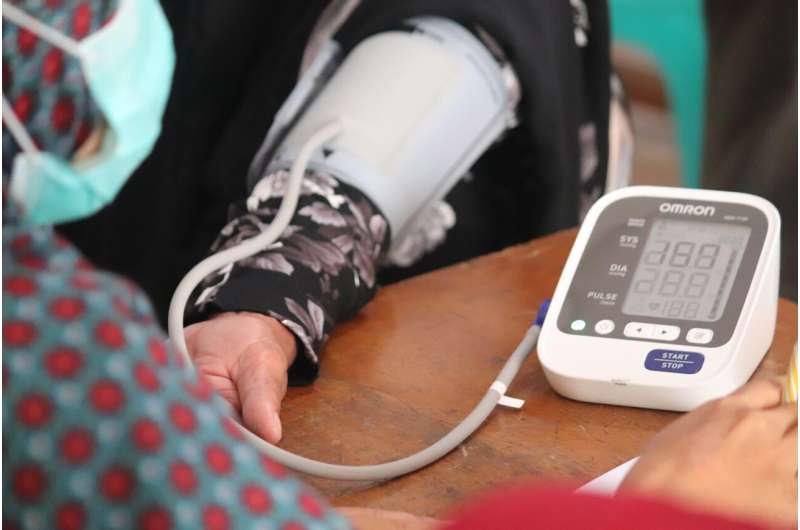This article has been reviewed according to Science X's editorial process and policies. Editors have highlighted the following attributes while ensuring the content's credibility:
fact-checked
peer-reviewed publication
trusted source
proofread
Study finds preventative health checks are reaching women most in need

University of Queensland research has found general practitioners are proactively providing preventative health checks to women in midlife who need it most, possibly due to sufficient Medicare rebates.
The research analyzed data from the Australian Longitudinal Study on Women's Health to determine whether preventative health checks were being carried out on women in midlife with the greatest need. The research was published in Medical Journal of Australia.
Clinical research fellow, Professor Jenny Doust from UQ's School of Public Health, said researchers also wanted to know if a patient's economic position might be also a barrier to accessing preventative health care.
"The types of preventative health checks generally available for women aged between 40–49 years are checks for those at risk of type 2 diabetes and chronic disease, as well as a heart health check," Professor Doust said.
"The research found that women were more likely to have had health checks if they had risk factors for chronic disease, which was in contrast to previous research which found that fewer GP practitioner services are provided to people with unhealthy lifestyles."
The findings were mirrored in a recent study looking at the uptake of health checks for Aboriginal and Torres Strait Islander people, which found these went to those who had the greatest health care needs.
"Our work shows that, in Australian primary care, people who need preventive care the most are more likely to receive it," Professor Doust said.
"We often hear about the inverse care law, that is the ability to access health care varies inversely with need. There is some previous evidence of the inverse care law in Australian general practice, with people who have unhealthy behaviors using fewer GP services and those living in disadvantaged areas having shorter GP consultation times."
"Our study shows that the inverse care law doesn't seem to apply here."
Professor Doust said one explanation might be the Medicare rebate paid to GPs for preventive health is at a sufficiently high level for general practitioners to be incentivized to provide this care.
"Fewer women in the study underwent heart health checks and this suggests the rebate for this service may be inadequate compared to the rebate for health checks for diabetes and chronic disease," she said.
"It is hard to design health care funding so that people who need care receive it, without also incentivizing overservicing to those who can afford to pay more. Partly we rely on health care providers being motivated to provide equitable care and our study suggests general practitioners are doing that."
The research was conducted as part of the Australian Longitudinal Study on Women's Health.
More information: Louise F Wilson et al, Preventive health checks in Australian general practice for women during mid‐life, Medical Journal of Australia (2023). DOI: 10.5694/mja2.52083





















